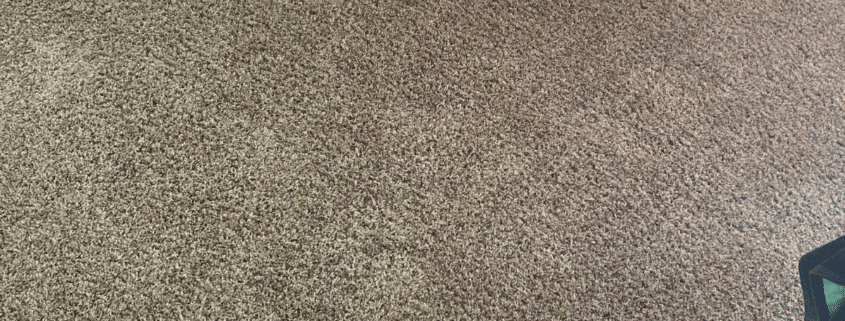Carpet Cleaning and Allergies: Florida Homeowners
If you’re one of the millions of Florida residents who suffer from allergies, you know how challenging it can be to find relief—especially inside your own home. While you might blame outdoor pollen or humidity for your sneezing, watery eyes, and congestion, the real culprit could be lurking right beneath your feet. Your carpets, despite their comfort and aesthetic appeal, might be harboring a hidden world of allergens that are making your symptoms worse.
Florida’s unique climate creates the perfect storm for allergen accumulation in carpets. The combination of high humidity, frequent rain, and year-round pollen creates conditions where dust mites, mold spores, and other allergens thrive in carpet fibers. House dust mites alone can trigger severe allergic reactions, asthma attacks, and respiratory irritation in sensitive individuals.
The good news? Professional carpet cleaning specifically designed for allergy relief can dramatically improve your indoor air quality and reduce your symptoms. Unlike regular vacuum cleaners or DIY steam cleaning methods, professional hot water extraction removes deep-seated allergens that cause breathing difficulties, skin irritation, and persistent cough.
The Hidden Connection: Carpets and Allergies in Florida
Florida’s Unique Allergen Challenges
Living in the Sunshine State comes with many benefits, but for allergy sufferers, Florida’s climate presents unique challenges. The state’s high humidity levels—often exceeding 70% during summer months—create an environment where allergens don’t just survive; they multiply rapidly in carpet fibers and textile surfaces.
Unlike drier climates where allergens might become airborne and settle elsewhere, Florida’s moisture-heavy air causes allergens to become trapped in carpet fibers, upholstery, and even in air conditioning ducts. This creates a concentrated reservoir of irritants right in your living space, affecting your nose, breathing, and overall health.
Common Carpet Allergens in Florida Homes
Your carpet may be harboring several types of allergens that are particularly problematic in Florida:
House Dust Mites: These microscopic creatures thrive in humid environments and feed on dead skin cells that naturally accumulate in carpets, mattresses, and upholstery. A single gram of carpet dust can contain up to 1,000 dust mites. These insects produce waste particles that trigger severe allergic reactions, including rhinitis, dermatitis, and asthma attacks.
Pollen: Florida’s year-round growing season means pollen is constantly being tracked into homes on shoes, clothing, and through open windows. Once embedded in carpet fibers, pollen can remain active for months, causing persistent sneezing, itchy skin, and respiratory irritation.
Pet Dander: Even if you don’t have pets, previous occupants’ pet allergens can persist in carpets for years. Cat and other animal proteins become embedded deep within carpet fibers and furniture. Florida’s humidity prevents these proteins from breaking down naturally, creating long-term exposure risks.
Mold and Mildew: High humidity and occasional moisture from Florida’s frequent rain showers create perfect conditions for mold growth within carpet padding and fibers. Mold spores can trigger severe asthma attacks, persistent cough, and skin reactions.
Bacteria and Microorganisms: Warm, humid conditions allow bacteria to flourish in carpet fibers, contributing to poor indoor air quality and potential health risks.
Organic Compounds: Various organic compounds from soil, food particles, and debris accumulate in carpets, creating an environment where allergens thrive and multiply.
How Carpets Become Allergen Magnets
The Double-Edged Sword of Carpet Filtration
Ironically, one of carpet’s benefits—its ability to act as a filter for airborne particles—can become a problem for allergy sufferers. Carpets naturally trap airborne contaminants, preventing them from circulating in your breathing space. However, without proper cleaning, these trapped allergens accumulate and can be released back into the air with every footstep.
In Florida’s humid climate, this filtration effect is amplified. The moisture in the air causes allergens to stick more firmly to carpet fibers, making them harder to remove with regular vacuum cleaners alone. Standard vacuum cleaners, even those with HEPA filters, cannot penetrate deep enough to extract embedded dust mites, pet dander, and microscopic particles that trigger allergic reactions.
The Science Behind Allergen Accumulation
Carpet fibers act like tiny magnets for allergens. The textile structure creates countless microscopic spaces where dust, pollen, and other particles become trapped. Over time, these particles break down into smaller, more potent allergens that can easily become airborne when disturbed.
House dust mites feed on the organic matter trapped in carpets, including dead skin cells, food particles, and other debris. As they multiply, their waste products create additional allergens that can trigger severe reactions in sensitive individuals.
Warning Signs Your Carpet May Be Triggering Allergies
If you’re experiencing any of these symptoms primarily when at home, your carpet may be the culprit:
- Morning congestion that improves when you leave the house
- Increased sneezing or cough while walking on carpeted areas
- Worsening asthma symptoms during humid weather
- Skin irritation, hives, or dermatitis after contact with carpeted surfaces
- Allergic reactions that improve when you’re away from home for extended periods
- Persistent musty odors in carpeted rooms
- Itchy nose, eyes, or throat when spending time in carpeted areas
- Difficulty breathing or respiratory irritation in certain rooms
Professional Carpet Cleaning vs. DIY for Allergy Relief
Why Regular Vacuum Cleaners Aren’t Enough
While regular vacuuming with a quality vacuum cleaner is essential for carpet maintenance, it only removes surface-level debris and allergens. Standard home vacuum cleaners, even those with HEPA air filters, cannot penetrate deep enough into carpet fibers to remove embedded allergens, dust mites, and their waste products.
In Florida’s humid environment, allergens become more deeply embedded due to moisture, making them even more difficult to extract with conventional vacuum cleaners. The suction power and filtration systems in residential vacuum cleaners simply aren’t designed for deep allergen extraction.
The Limitations of DIY Cleaning Methods
Many homeowners attempt to address carpet allergies with DIY solutions, but these methods often fall short:
Rental Carpet Cleaners: These machines lack the power and heat necessary for deep allergen extraction. They also don’t reach the high temperatures needed to kill dust mites and neutralize allergens.
Home Steam Cleaning: Without proper water extraction capabilities, these methods can actually increase humidity and promote mold growth, making allergy problems worse.
Chemical Sprays and Powders: Many contain harsh ingredients that can worsen respiratory symptoms and cause additional skin irritation. Some carpet cleaning products contain acids, bleach, or other chemicals that may trigger allergic reactions.
Carpet Shampoo Methods: Traditional shampooing leaves residue that can attract more dirt and allergens, creating a cycle of contamination.
Dry Cleaning Methods: While gentler on some textiles, dry cleaning methods don’t provide the deep cleaning necessary for allergen removal.
Professional carpet cleaning addresses these limitations with specialized equipment and techniques designed specifically for allergen removal and indoor air quality improvement.
Frogs Floor Care’s Allergy-Fighting Cleaning Process
Hot Water Extraction: The Gold Standard for Allergen Removal
At Frogs Floor Care, we use hot water extraction as our primary method for allergen removal. This process, recommended by the Asthma and Allergy Foundation of America, involves:
- Pre-treatment: Specialized detergent solutions break down allergen bonds in carpet fibers without harsh chemicals that might trigger respiratory reactions.
- High-temperature water extraction: Water heated to 200+ degrees kills dust mites, neutralizes allergens, and breaks down organic compounds that harbor bacteria and mold.
- Powerful extraction: Industrial-grade equipment removes allergens, moisture, and cleaning solutions, preventing mold growth and reducing humidity levels.
- HEPA filtration: Our equipment includes advanced filtration systems that capture microscopic particles and prevent them from becoming airborne during the cleaning process.
- Fast drying: Proper water extraction prevents mold growth and reduces humidity, creating an environment hostile to dust mites and other allergens.
Kid and Pet-Safe Solutions
Understanding that many allergy sufferers are also concerned about chemical sensitivities, we use only kid and pet-friendly cleaning solutions. Our hypoallergenic cleaning products are free from harsh acids, bleach, and other irritants that could trigger allergic reactions or respiratory problems.
Our certified technicians are trained to select the safest, most effective products for your family’s specific needs, ensuring that the cleaning process provides relief rather than additional irritation.
Certified Expertise You Can Trust
Our technicians maintain certifications in the latest carpet cleaning techniques and allergen removal methods. With over 30 years of experience serving the Lakeland and Central Florida area, we understand the unique challenges Florida homeowners face with carpet allergies, humidity control, and indoor air quality management.
Comprehensive Allergen Removal for Your Entire Home
Beyond Carpet: Upholstery and Furniture Cleaning
Allergens don’t just accumulate in carpets—they also build up in upholstery, furniture, and other textile surfaces throughout your home. Our comprehensive cleaning services address:
Upholstery Cleaning: Sofas, chairs, and other furniture harbor the same allergens as carpets. Our specialized upholstery cleaning removes dust mites, pet dander, and other allergens from fabric furniture.
Mattress Cleaning: Your bed can be a major source of dust mite exposure. Professional mattress cleaning removes allergens and creates a healthier sleeping environment.
Area Rugs: Both synthetic and wool rugs require specialized cleaning to remove embedded allergens without damaging delicate fibers.
Air Duct and HVAC Considerations
While we focus on floor cleaning and upholstery, we recognize that your air conditioning system and ductwork play crucial roles in indoor air quality. We can recommend when duct cleaning might be beneficial and how to maintain your HVAC system’s air filters for optimal allergen control.
Specific Benefits for Florida Allergy Sufferers
Dust Mite Elimination in Humid Conditions
House dust mites cannot survive the high temperatures used in professional hot water extraction. Our process eliminates both live mites and their allergenic waste products, providing immediate relief for dust mite allergy sufferers. The combination of heat and water extraction creates an environment where dust mites cannot survive or reproduce.
Mold and Mildew Prevention
Our cleaning process removes existing mold spores and includes antimicrobial treatments that prevent future growth. Proper water extraction eliminates the moisture that mold and mildew need to thrive, breaking the cycle of contamination that’s common in Florida’s humid climate.
Improved Indoor Air Quality
Professional carpet cleaning can reduce airborne allergens by up to 94%, according to industry studies. This improvement is particularly noticeable in Florida homes where high humidity can trap allergens in carpet fibers and other textile surfaces. Cleaner carpets mean fewer particles circulating through your air conditioning system and better overall air quality.
Particulate Reduction
Our cleaning process removes microscopic particles that standard vacuum cleaners miss. These tiny particulates can trigger severe allergic reactions and respiratory problems, especially in individuals with asthma or sensitive breathing conditions.
Odor Elimination
Allergens often come with unpleasant odors from organic compounds, pet accidents, and bacterial growth. Our cleaning process neutralizes these odors at their source, creating a fresher, healthier indoor environment.
How Often Should Allergy Sufferers Clean Their Carpets?
Recommended Frequency for Florida Homes
For allergy sufferers in Florida, we recommend professional carpet cleaning every 3-4 months, compared to the standard 6-12 months for non-allergy households. This increased frequency accounts for:
- Higher humidity levels that promote allergen accumulation
- Year-round pollen seasons that continuously introduce new allergens
- Increased indoor time during hot summer months when air conditioning systems recirculate indoor air
- Faster dust mite reproduction in humid conditions
Seasonal Considerations for Maximum Relief
Spring (March-May): Peak pollen season requires additional attention as tree and grass pollens are tracked indoors on shoes and clothing. Consider scheduling cleaning before allergy season peaks.
Summer (June-August): High humidity and increased indoor time due to heat create ideal conditions for dust mite reproduction. This is often when allergy symptoms are most severe for sensitive individuals.
Fall (September-November): Ragweed and other fall allergens, combined with the return to school and increased indoor activities, make this another critical cleaning period.
Winter (December-February): Indoor allergen concentration due to closed windows and increased use of heating systems requires attention to maintain healthy indoor air quality.
High-Risk Periods Requiring Additional Cleaning
Consider additional cleaning during:
- Exceptionally humid weather when mold and mildew growth accelerates
- After illness in the household when bacteria and viruses may be present in carpets
- Following home renovations that introduce construction dust and debris
- When introducing new pets or furniture that may harbor allergens
- After water damage or flooding that could promote mold growth
- During periods when family members experience increased allergy symptoms
Additional Strategies for Managing Carpet Allergies
Complementary Indoor Air Quality Improvements
While professional carpet cleaning is the most effective method for allergen removal, these additional steps can help maintain a healthier indoor environment:
Air Purifiers with HEPA Filters: Use high-quality air purifiers in bedrooms and main living areas to capture airborne particles that escape from carpets and furniture.
Humidity Control: Maintain indoor humidity below 50% using dehumidifiers to create an environment hostile to dust mites and mold growth.
Enhanced Ventilation: Improve air circulation to prevent stagnant air that allows allergens to accumulate.
Regular HVAC Maintenance: Change air conditioning filters monthly and consider upgrading to HEPA filters for your HVAC system.
Preventive Measures Between Professional Cleanings
Entrance Management: Remove shoes at entryways to reduce tracked-in pollen, soil, and other outdoor allergens. Use both indoor and outdoor mats to capture particles before they reach carpeted areas.
Bedding and Textile Care: Wash bedding weekly in hot water (130°F or higher) to kill dust mites. Consider hypoallergenic pillow and mattress covers to create barriers against dust mites.
Pet Care: If you have pets, groom them regularly to reduce dander accumulation. Vacuum pet bedding frequently and consider keeping pets out of bedrooms.
Immediate Spill Response: Address spills and moisture immediately to prevent mold growth and bacterial contamination.
Advanced Allergen Control Techniques
Vacuum Cleaner Upgrades: Invest in a high-quality vacuum cleaner with HEPA filtration and strong suction power. Vacuum 2-3 times per week, paying special attention to high-traffic areas.
Carpet Treatments: Consider professional application of allergen-reducing treatments that can help neutralize dust mite allergens between cleanings.
Furniture Arrangement: Minimize clutter and choose furniture that’s easy to clean around. Consider replacing heavy drapes with washable window treatments.
When to Consider Carpet Replacement
If allergies persist despite regular professional cleaning and preventive measures, consider:
Age-Related Allergen Accumulation: Carpets over 10-15 years old may harbor deep-set allergens that are difficult to remove completely, especially if they’ve experienced water damage or heavy pet use.
Persistent Odors: Carpets with persistent musty odors that don’t respond to professional cleaning may have deep mold contamination or padding issues.
Severe Water Damage History: Carpets that have experienced flooding or significant water damage may never be completely free of mold spores and bacteria.
Fiber Type Considerations: Some carpet fibers are more prone to allergen accumulation than others. Wool carpets, while luxurious, can harbor more allergens than synthetic alternatives.
Alternative Flooring Options: Consider allergy-free flooring alternatives like tile, hardwood, or luxury vinyl that are easier to keep allergen-free, especially in bedrooms where you spend the most time.
Success Stories: Real Relief for Lakeland Families
Throughout our 30+ years serving the Lakeland community, we’ve helped countless families find relief from carpet-related allergies. Many clients report significant improvements in their symptoms within days of professional cleaning:
Respiratory Improvements: Reduced morning congestion, clearer breathing, and decreased need for asthma medication as indoor air quality improves.
Better Sleep Quality: Improved bedroom air quality leads to better rest, especially important for children with allergies who may struggle with nighttime breathing difficulties.
Reduced Medication Dependence: Many families report decreased reliance on allergy medications and fewer doctor visits for respiratory issues.
Enhanced Comfort: Overall improvement in family comfort and well-being, with reduced skin irritation, fewer headaches, and improved quality of life.
Long-term Health Benefits: Consistent professional cleaning helps prevent the development of more serious respiratory conditions and reduces the risk of asthma complications.
Our comprehensive approach to carpet care addresses not just visible dirt and stains, but the invisible allergens that can significantly impact your family’s health and comfort. We understand that for allergy sufferers, carpet cleaning isn’t just about appearance—it’s about creating a healthy living environment.
The Science Behind Effective Allergen Removal
Understanding Allergen Particles
Different allergens require different removal approaches:
Dust Mite Allergens: These protein particles are extremely small and become deeply embedded in carpet fibers. Hot water extraction is essential for breaking down these proteins and removing them completely.
Pollen Particles: While larger than dust mite allergens, pollen can break into smaller fragments that become more potent allergens. Professional cleaning removes both whole pollen grains and fragmented particles.
Pet Allergens: Animal proteins from saliva, urine, and dander require specialized cleaning solutions to break down and remove completely. These allergens are particularly persistent and can remain active for months without proper treatment.
Mold Spores: These microscopic organisms require both removal and prevention strategies. Professional cleaning eliminates existing spores while creating conditions that prevent future growth.
Why Heat and Moisture Control Matter
The combination of heat and controlled moisture in professional hot water extraction creates the ideal conditions for allergen elimination:
Thermal Death Point: Dust mites die at temperatures above 140°F, while our equipment reaches temperatures well above this threshold.
Protein Denaturation: High heat breaks down the protein structures in allergens, rendering them harmless.
Improved Extraction: Heat makes water more effective at dissolving and removing embedded particles and organic compounds.
Moisture Control: Proper extraction prevents the humidity that allows mold and dust mites to thrive.
Take Action for Healthier Indoor Air
Don’t let carpet allergies control your comfort in your own home. Professional carpet cleaning designed specifically for allergen removal can provide the relief you’ve been seeking, allowing you to enjoy the comfort and beauty of your carpets without the sneezing, congestion, cough, and skin irritation that plague allergy sufferers.
Unlike DIY methods that may provide temporary relief, professional hot water extraction addresses the root causes of carpet allergies by removing dust mites, pollen, pet dander, mold spores, and other allergens that accumulate deep within carpet fibers and upholstery.
Ready to breathe easier in your Lakeland home?
Contact Frogs Floor Care today to schedule your allergy-relief carpet cleaning:
Experience the difference that 30+ years of expertise and genuine care can make. At Frogs Floor Care, we treat every customer like family—and every family deserves to breathe easy in their own home.






